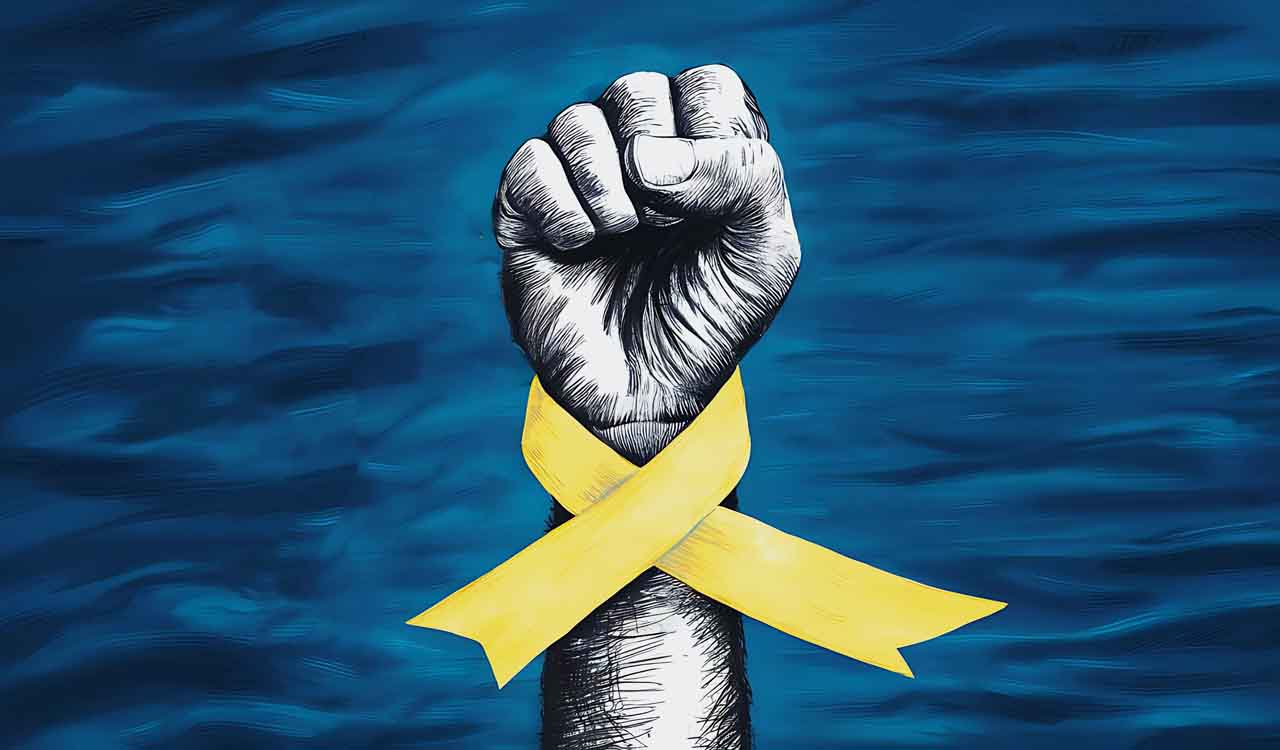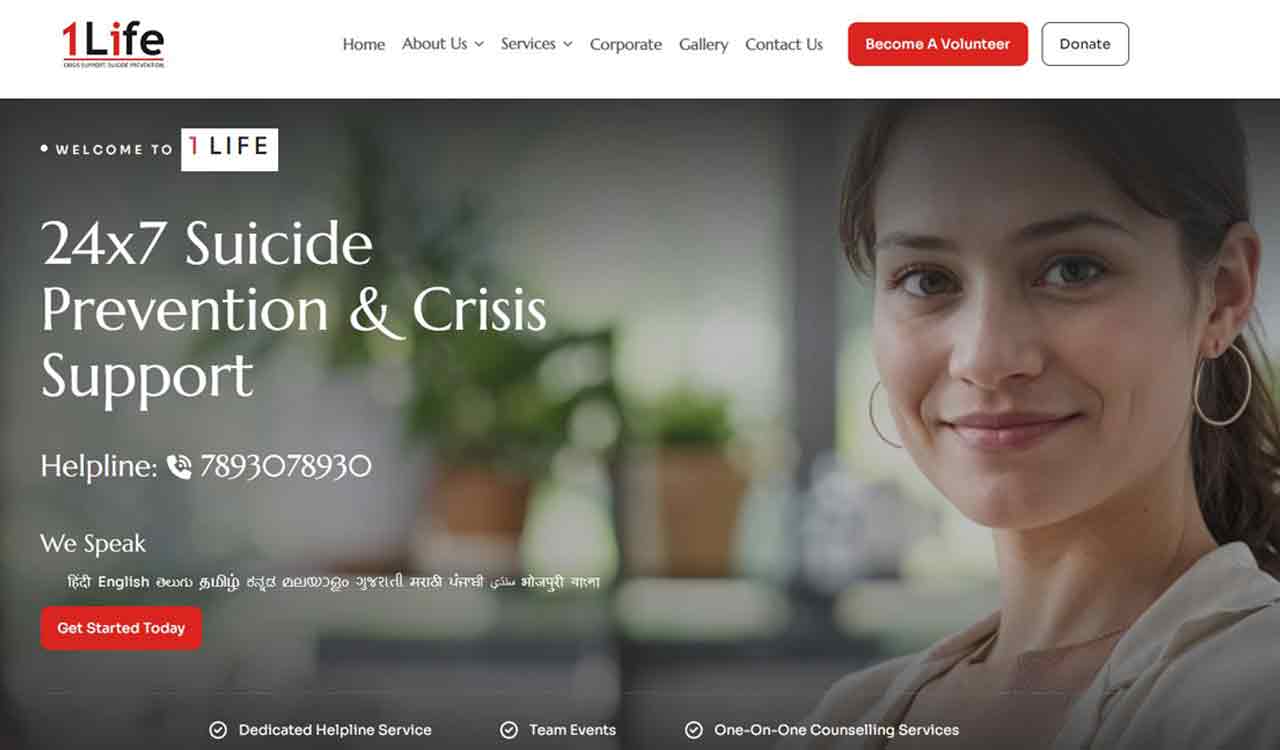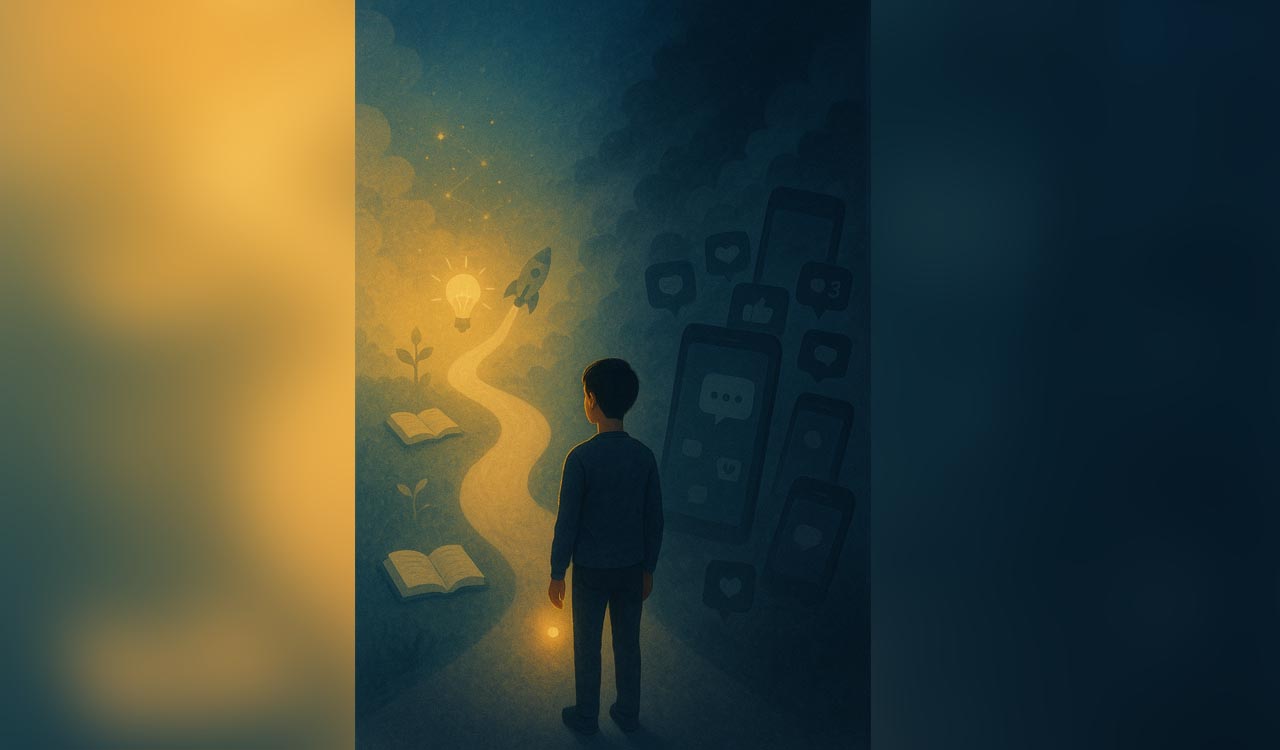Suicide is not the way out
Suicide is often the result of a strong reason and a weak moment. On World Suicide Prevention Day, let’s focus on the ‘weak moment’ — a critical window that offers an opportunity for prevention

By Dr Kattamreddy Ananth Rupesh
Suicide is a serious public health issue, taking more than 7,20,000 lives each year. The impact of each loss is far-reaching, affecting families, friends, workplaces, and communities socially, emotionally, and economically.
The theme for World Suicide Prevention Day 2024–2026 is “Changing the Narrative on Suicide.” This theme encourages everyone to confront harmful misconceptions, break down stigma, and promote honest, compassionate discussions about suicide. It emphasises moving from silence and misunderstanding to empathy and support, fostering environments where people feel safe to speak out and seek help.
In times of intense emotional distress due to a traumatic relationship or overwhelming situational pressure experienced when important things don’t turn out as planned, some individuals contemplate ending their lives. Sadly, in these moments, they may believe that suicide is a way to silence the pain. But suicide doesn’t end suffering; it redistributes it.
Moments of Crisis
Nowadays, self-help gurus often preach that one has to simply ‘move on’ from physical or emotional hardship. But life doesn’t always follow the script we expect — or the motivational blueprint a TikTok influencer posts while sipping their oat milk latte. Whether it’s unrequited love, personal or professional failure, or the loneliness of unmet expectations, these struggles don’t simply disappear — they stay with us.
Yet suicide is never a solution. It doesn’t end suffering; it transfers it to those left behind, leaving family and friends with enduring grief, guilt, and sorrow for a lifetime. Anyone considering suicide must pause and ask: What will I leave behind for those who love me? No matter how undeserving one may feel, someone always cherishes their presence and will feel their absence.
As a forensic pathologist, I encounter completed suicides more often than a psychiatrist, who typically sees only attempted or incomplete cases, and in most instances, these suicides are impulsive. A failed exam, a fight at home, a teen breakup, or financial stress can push someone over the edge. These are often not premeditated decisions, but heat-of-the-moment reactions to life’s tribulations. Many of these individuals are not suffering from chronic mental illness. They are just like you and me; ordinary people caught in a moment of extraordinary pain, without an anchor to hold on to.
One thing most of them forget is that we live in a world that is inherently unpredictable (volatile, uncertain, complex, and ambiguous). Everyone carries their own burdens, their own silent battles, and their own level of suffering. They are not alone in facing hardship; though it may feel that way in the moment. That’s why suicide prevention must involve all of us.
We need to be gatekeepers — watchful, compassionate, and proactive. If someone you know is behaving differently, both physically as well in social media, isolating themselves, or showing signs of despair, reach out. Asking someone if they’re okay is not an invasion of privacy; it’s an act of love. Sometimes, just having someone to talk to can divert the mind from an impulsive act.
Strong Reason, Weak Moment
The idea of suicide is fundamentally flawed because it extinguishes nothing — neither the circumstances, nor the suffering. It only removes the individual from the possibility of healing and inflicts that pain onto others. Pain doesn’t vanish — it transfers.
With years of experience in dealing with suicide cases, I have come to believe that suicide is often the result of a strong reason and a weak moment. While it is extremely difficult to intervene at the level of the “strong reason” — as it stems from an individual’s deeply personal perception — we can focus our efforts on the “weak moment.” This critical window offers an opportunity for prevention.
That weak moment can be intercepted by restricting access to means of suicide, distracting the individual, or engaging them in an immediate activity. In such moments of crisis, a brief pause, a moment of distraction, or even a kind, non-judgmental voice can mean the difference between life and death.
Let’s remember that what someone needs then is not criticism, but presence — a caring friend, a supportive teacher, or a compassionate family member. Be that anchor. Let your presence remind them that storms do pass, and even the darkest night gives way to dawn.

(The author is Assistant Professor of Forensic Medicine and Toxicology, Government Medical College, Ongole)
Related News
-
Couple killed on the spot as lorry hits two-wheeler in Mancherial
3 mins ago -
Bihar Class 10 girl found dead on railway tracks; family says denial of exam entry led to suicide
5 mins ago -
5 HDFC Bank employees arrested in J&K for financial fraud
12 mins ago -
Harshvardhan Rane shoots wildlife in freezing minus-one temperature
15 mins ago -
Kyathanpalli municipal poll chaos: Former councillor arrested in Chennur
24 mins ago -
Woman’s suicide: Youth Congress leader taken into custody in Kerala
28 mins ago -
GHMC steps up sanitation near Charminar ahead of Ramzan
32 mins ago -
Horoscope: Find out your star predictions today, Feb 18, 2026
34 mins ago




